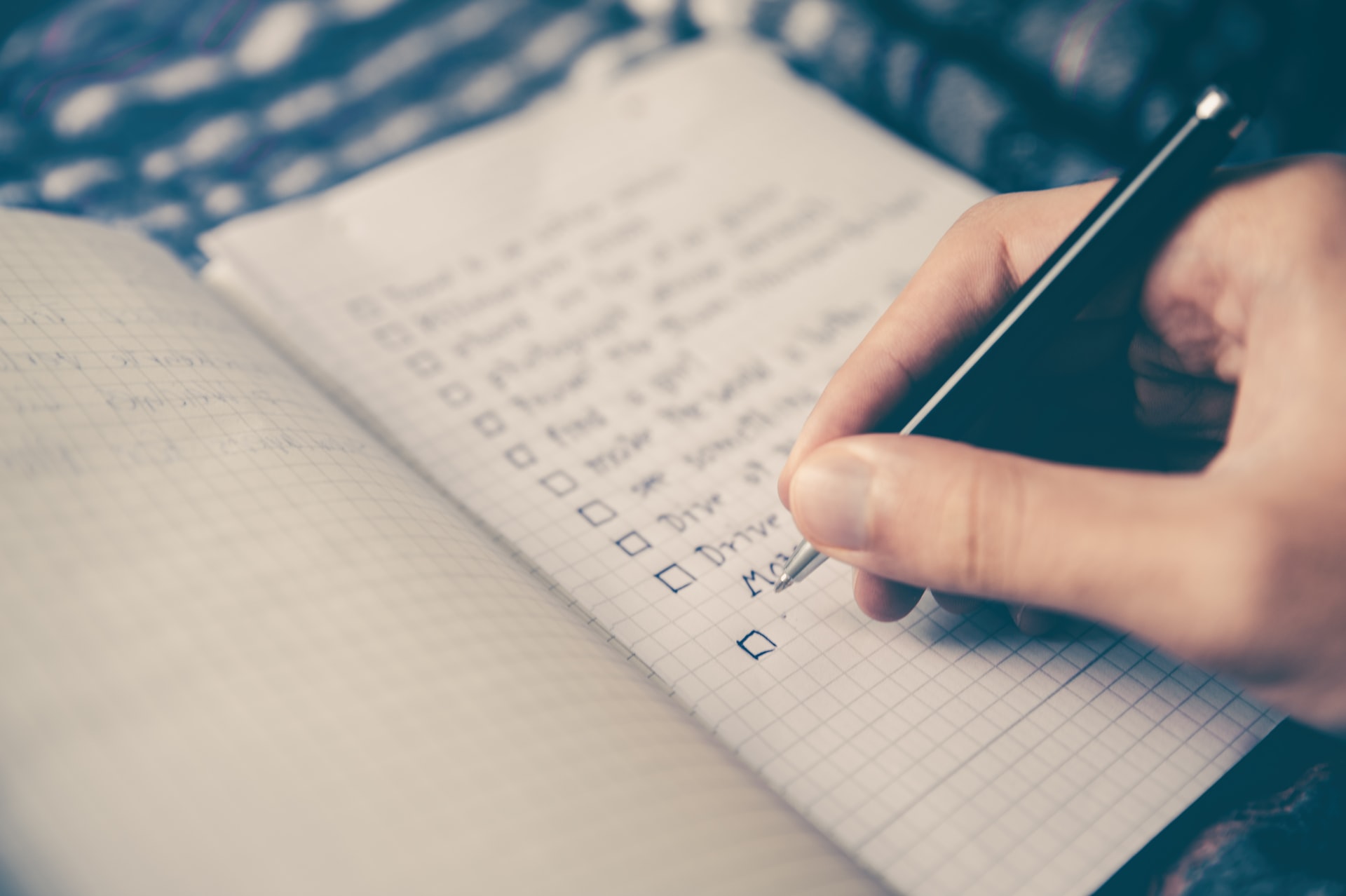“Your Mental Health is more important than the test, the interview, the lunch date, the meeting, the family dinner, the soccer game, the recital, and the grocery-run. Take care of yourself.”
The Anxiety and Depression Association of America states, “Anxiety disorders are the most common psychiatric illnesses affecting children and adults. An estimated 44 million American adults suffer from anxiety disorders. Yet only about one-third of those suffering from an anxiety disorder receive treatment even though the disorders are highly treatable.”
 It seems the word Anxiety is used quite often in today’s society. You may be wondering if it is even being used correctly in people’s everyday language or if they are meaning everyday worry. You might wonder if there is even a difference between worry and anxiety. Let’s take a look at these similar terms.
It seems the word Anxiety is used quite often in today’s society. You may be wondering if it is even being used correctly in people’s everyday language or if they are meaning everyday worry. You might wonder if there is even a difference between worry and anxiety. Let’s take a look at these similar terms.
Worry is defined as uneasiness or allowing the mind to dwell on difficulty or troubles. The American Psychological Association defines anxiety as an emotion characterized by feelings of tension, worried thoughts, which accompany physical changes such as increased blood pressure.
They sound similar so let’s keep going. When an individual worries, they are able to decipher what they are worried about and pinpoint what is causing them to feel this way. Oftentimes anxiety cannot be pinpointed. You feel anxious but are not able to decipher the reason.
A person with an anxiety disorder experiences anxiety attacks. Anxiety attacks are often confused with panic attacks, though they are different things. Someone who has an anxiety disorder may experience panic attacks, which can and do have similar symptoms to an anxiety attack.
The difference between the two is simply the intensity and how long the attack may last. Panic attacks are sudden and feel as if they are out of the blue and may peak within ten minutes. Anxiety attacks intensify over time and could build over a week or even months. It is the building of these symptoms that identifies it as an anxiety attack.
Panic attacks can occur without a panic disorder but most likely if you are experiencing an anxiety attack you have an anxiety disorder. Anxiety disorders come in many shapes and sizes and every individual may have different symptoms while experiencing anxiety although they may both be experiencing an anxiety disorder.
The ten most common anxiety attack symptoms as listed in “The Anxiety and Phobia Workbook by Edmund J. Bourne, Ph.D. includes muscle tension, disturbed sleep, difficulty concentrating, fatigue, restlessness, irritability, increased startle response, increased heart rate, shortness of breath and dizziness. Being aware of these symptoms is the first step to understanding if you are experiencing anxiety.
Self-awareness is the second step. It is vital to know how you respond in certain situations, what your triggers are, and what helps manage your anxiety. Being aware of your physical symptoms of anxiety is also important.
If you know you have sweaty palms or a racing heartbeat when you are feeling anxious identifying these physical symptoms immediately can help you redirect and decrease your anxiety before it gets out of hand or turns into an anxiety attack.
 Self-awareness is also tremendously important in identifying where you are “maintaining causes of anxiety”. Maintaining causes include anxious self-talk, mistaken self-beliefs, withheld feelings, lack of assertiveness, lack of self-nurturing skills, muscle tension, stimulants and other dietary factors. Wow! That’s a lot of information and what does it even mean? Let’s take a look at a few of these items.
Self-awareness is also tremendously important in identifying where you are “maintaining causes of anxiety”. Maintaining causes include anxious self-talk, mistaken self-beliefs, withheld feelings, lack of assertiveness, lack of self-nurturing skills, muscle tension, stimulants and other dietary factors. Wow! That’s a lot of information and what does it even mean? Let’s take a look at a few of these items.
My favorite and in my opinion the one that is most beneficial to decreasing your anxiety is being aware of your self-talk or as stated, “anxious self-talk.” Self-talk is the conversation we have with ourselves on a daily basis. You might think this sounds crazy but we do it! More than you even realize.
Another word that may sound less therapeutic would be our internal dialogue. That better? Think about it, let’s walk through a person’s every day. Let’s call this person Jane. Jane wakes up, rolls out of bed and thinks, “Oh no its Monday, another day of work.” She puts on her work attire, looks in the mirror and thinks “why did I eat that cheeseburger last night?”
Jane gets to work and after half an hour submits her work proposal she has been working on for months. Her boss does not acknowledge Jane’s proposal that day and provides no feedback. Jane automatically begins to think of her work as a disappointment again.
Jane has not even gotten to her lunch break and already her internal dialogue is so prominent in shaping her pessimistic outlook and beliefs that shape her self-worth and confidence. Now you might think there is no way I am Jane. Accept this challenge: start observing your self-talk and change your negative talk to positive talk. Taking this step alone can exponentially decrease your anxiety levels.
 Anxiety is a normal part of everyday life. There are events in our life that can cause anxiety and it is when our anxiety affects our everyday functioning that it is a problem. Anxiety is a natural part of being human and at certain levels of anxiety can be an effective emotion that protects us from harm or may push us to succeed.
Anxiety is a normal part of everyday life. There are events in our life that can cause anxiety and it is when our anxiety affects our everyday functioning that it is a problem. Anxiety is a natural part of being human and at certain levels of anxiety can be an effective emotion that protects us from harm or may push us to succeed.
Anxiety becomes unhealthy when intrusive thoughts take over your every day, you become distracted and your self-talk makes you uncertain and fearful and unable to conduct a normal and effective day.
Ok, so you have figured out you have anxiety and have experienced multiple of the symptoms above, you may wonder “what does that mean?” or “what am I actually in control of?” More than you think.
Someone who is struggling from an anxiety disorder has to intervene on three levels for an effective recovery as The Anxiety and Phobia Workbook states: “reducing physiological reactivity, eliminate avoidance behavior and change subjective interpretations or self-talk which maintains the state of anxiety.”
Since every individual struggles and is triggered by different situations or things every approach to decreasing anxiety may be different from another individuals approach.
Anxiety can develop from one or many of the following factors: Heredity, childhood circumstances, cumulative stress over time, Biological factors, stressors/trauma and maintaining causes. Understanding what factors influence you and have made you susceptible to anxiety can be a beneficial factor in decreasing your anxiety as well as identifying your triggers. Although this does not fix your anxiety, understanding how and why it developed may help you understand anxiety in a new light.
 Another factor that aids in decreasing anxiety is developing appropriate coping skills. This is an important tool to becoming a healthier and more functional person. What are healthy coping skills?
Another factor that aids in decreasing anxiety is developing appropriate coping skills. This is an important tool to becoming a healthier and more functional person. What are healthy coping skills?
Healthy coping skills would be activities that you can participate in that will decrease negative emotion, help you process through difficulty or distract you from your hurt and partaking in the coping skill does not create a negative outcome in the long run, such as (for example) coping with drugs.
Examples of effective and healthy coping would be exercising, painting, singing, reading, comedy shows, karate – this list is expansive, and every individual has a unique set of coping skills that is effective for them. You have to figure out what works best for you in decreasing your anxiety.
Without effective and healthy coping skills anxiety only worsens. When someone experiences anxiety but does not have outlets to help them come up for air it is as if they feel like they are continually underwater with the weight of an elephant resting on their chest. It only becomes more overwhelming over time.
Anxiety can be overpowering! It can stop you from living everyday life. Small tasks seem like big ones and suddenly things begin to pile up on top of each other and you cannot seem to put one step in front of the other. It is my opinion that talk therapy is effective in decreasing your anxiety, feeling supported and capable of defeating this opponent called anxiety.
You are bigger than your demons and it is time to know anxiety’s weaknesses and demolish the weight they have been holding over you. “Becoming fearless isn’t the point. That’s impossible. It’s learning how to control your fear, and how to be free from it.”
If you feel you are struggling with anxiety and want more answers, help or comfort during this fragile time please contact me! I do not want you to have to walk this road alone. You are not the only one feeling this way. To find more information on anxiety please visit https://adaa.org/about-adaa/press-room/facts-statistics. Do not let something treatable be untreated.
“Forest Road”, Courtesy of bertvthul, Pixabay.com, CC0 License; “Loneliness”, Courtesy of jwvein, Pixabay.com, CC0 License; “Hope”, Courtesy of Sara Olsen, Pixabay.com, CC0 License; “Anxious”, Courtesy of LoganArt, Pixabay.com, CC0 License





